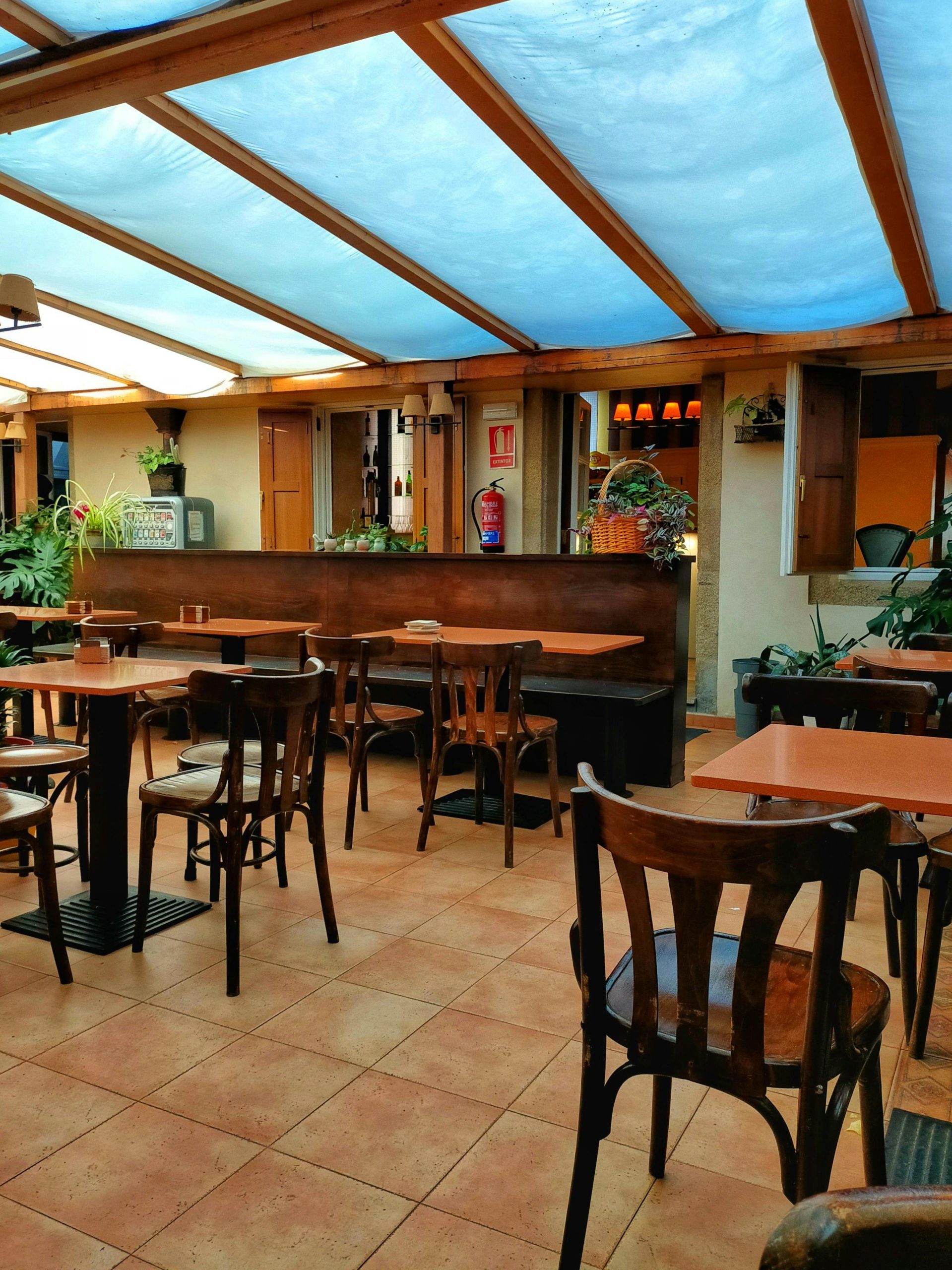Sustainable hospitality operations offer more than environmental benefits—they drive long-term success by blending eco-friendly practices with operational excellence. Adopting green technologies, reducing waste, and ethically sourcing materials not only enhance profitability but also meet growing guest expectations. Empowered staff and engaged guests become catalysts for transformation, while clear metrics ensure progress. Embracing sustainability redefines hospitality as a forward-thinking industry balancing responsibility and performance.
Implementing Sustainable Operations in Hospitality
Sustainable hospitality operations are increasingly essential for modern hospitality businesses aiming to combine operational excellence with environmental responsibility. The key pillars of sustainability in hotels and restaurants include energy efficiency, waste reduction, water conservation, and sourcing locally produced, eco-friendly materials. Emphasizing these pillars helps establish a foundation for long-term environmental and economic benefits.
Also to read : How do UK businesses stay competitive in a digital-first world?
Integrating eco-friendly practices into daily operations requires deliberate adjustments tailored to the hospitality business. For example, implementing energy-saving technologies like LED lighting and smart thermostats reduces power consumption without compromising guest comfort. Waste reduction strategies such as comprehensive recycling programs and partnering with suppliers that minimize packaging significantly decrease the environmental footprint. Water conservation can be addressed through low-flow fixtures and conscientious housekeeping routines that avoid unnecessary linen washing.
A common question is how to balance sustainability with profitability. The answer lies in viewing eco-friendly practices not as costs but as investments that enhance the brand reputation and operational efficiency. Hotels and restaurants that adopt sustainable hospitality operations often see reduced utility expenses and attract a growing demographic of environmentally conscious guests, which can increase revenue. Furthermore, demonstrating commitment to sustainability can open doors to certifications and partnerships that further strengthen business positioning.
Have you seen this : Unlocking sustainable practices in the hospitality industry
In summary, adopting sustainable hospitality operations by embedding eco-friendly practices into everyday workflows fosters operational excellence while supporting financial goals. For hospitality businesses aiming to lead in this space, understanding and applying these principles is vital. For more detailed strategies, see Quick access here.
Energy Efficiency Strategies for Hospitality Businesses
Optimizing resources for a sustainable future
Implementing energy efficiency in hotels is crucial for reducing operational costs and promoting environmental responsibility. One effective approach involves adopting green technology tailored specifically for the hospitality sector. This includes upgrading to energy-efficient lighting systems such as LED bulbs and smart controls that adjust brightness based on occupancy and daylight availability. These technologies significantly lower electricity consumption while maintaining guest comfort.
Alongside lighting improvements, managing Heating, Ventilation, and Air Conditioning (HVAC) systems plays a pivotal role. Optimized HVAC solutions, like programmable thermostats and variable-speed drives, ensure climate control is both precise and energy-conscious. Additionally, selecting Energy Star-rated appliances further complements these efforts by minimizing unnecessary power use without compromising functionality.
To measure and achieve tangible energy savings, businesses should utilize energy management software capable of tracking consumption in real time. These tools identify inefficiencies and highlight areas for improvement, enabling hotels to make informed, data-driven decisions. By integrating these strategies, hospitality businesses not only cut down on energy costs but also demonstrate their commitment to sustainable practices, which increasingly influence consumer choices.
Waste Reduction and Resource Management Approaches
Effective waste reduction strategies are essential for advancing sustainable resource management in hospitality. One key approach is implementing comprehensive waste separation and recycling programs. By categorizing waste into recyclables, compostables, and landfill-bound refuse, establishments can maximize resource recovery and minimize environmental impact. For instance, separating plastics, glass, and organic waste at the source improves recycling efficiency and reduces contamination rates.
Food waste minimisation is another critical element of sustainable resource management. Techniques like portion control, inventory tracking, and utilizing imperfect produce help limit surplus food generation. When unavoidable food waste occurs, composting not only diverts organic material from landfills but also creates valuable soil amendments, closing the nutrient loop within zero-waste hospitality frameworks.
Additionally, reducing single-use plastics is a priority in waste reduction strategies. Hospitality venues can replace disposable straws, cutlery, and packaging with reusable or biodegradable alternatives, significantly lowering plastic pollution. These proactive steps also resonate with environmentally conscious guests, enhancing brand reputation.
Collectively, these measures form the backbone of sustainable resource management and promote a shift towards zero-waste hospitality that balances operational efficiency with ecological responsibility.
Green Purchasing and Responsible Sourcing
Choosing green sourcing strategies is vital for organizations committed to minimizing environmental impact. This approach focuses on selecting ethical suppliers who prioritize sustainability and offer products made from renewable or recycled materials. By engaging with such suppliers, companies ensure that their procurement processes support eco-conscious manufacturing and fair labor practices.
Prioritising local and organic purchases further enhances responsible sourcing. Sourcing locally reduces the carbon footprint associated with transportation, while organic products minimize chemical usage, promoting healthier ecosystems. Organizations benefit by building stronger community ties and supporting regional economies, all while maintaining an eco-friendly procurement model.
Verifying certifications and transparency is essential when evaluating suppliers. Reliable certifications — such as those for organic, fair trade, or environmental management — provide assurance about product standards and sourcing integrity. Transparent communication from suppliers allows buyers to make well-informed decisions, ensuring every step of the sourcing chain aligns with sustainability goals.
By integrating these principles, green sourcing not only advances eco-friendly procurement but also builds trust and accountability within the supply chain. This strategic approach empowers businesses to deliver products responsibly and contribute positively to environmental stewardship.
Staff Training, Leadership, and Culture Building
Small text: Empowering your team for a sustainable future
Effective hospitality staff training is the cornerstone of building a robust workplace sustainability culture. Educating staff on sustainable operations includes teaching energy-efficient practices, waste reduction techniques, and water conservation methods tailored specifically for hospitality environments. This training not only enhances the team’s environmental awareness but also equips them with practical skills to implement sustainable changes daily.
Leadership plays a pivotal role in this transformation. Strong sustainable leadership is demonstrated through visible commitment to eco-friendly goals and encouraging innovation in sustainable practices. Leaders who prioritize continuous improvement inspire their teams to embrace sustainability enthusiastically rather than viewing it as an obligation.
Cultivating a workplace sustainability culture goes beyond formal training sessions. It requires empowering staff at all levels to become champions of sustainability initiatives. When employees feel ownership and are recognized for their green contributions, their engagement deepens, creating a positive feedback loop that drives ongoing sustainability progress.
By investing in comprehensive hospitality staff training and fostering sustainable leadership, organizations can embed sustainability into their operational DNA, ensuring long-term success and meaningful environmental impact.
Engaging Guests in Sustainability Initiatives
Enhancing the sustainable guest experience through active involvement
Effectively communicating sustainability practices to guests is essential for fostering guest engagement and appealing to eco-conscious travellers. Clear, transparent information about how the hospitality provider implements green measures helps guests understand their role in promoting sustainability. This can be conveyed through various channels such as in-room materials, digital media, and staff interactions, ensuring guests are well-informed and motivated.
Designing participatory green programs invites guests to become active contributors rather than passive observers. Examples include incentivized recycling efforts, energy-saving challenges within rooms, or options to participate in local environmental projects. Such hands-on involvement enriches the sustainable guest experience by turning sustainability into a shared journey.
Showcasing the tangible impact of guest actions and gathering feedback further deepens engagement. Providing metrics like water saved or emissions reduced, attributed to guest participation, creates a sense of accomplishment. Additionally, encouraging feedback on sustainability initiatives allows continuous improvement and makes guests feel valued in shaping ongoing efforts.
By integrating these approaches, hospitality providers can meaningfully engage guests, nurture loyalty among eco-conscious travellers, and enhance their overall sustainable offerings.
Measuring Impact and Overcoming Common Challenges
Understanding metrics and solutions for effective sustainability efforts
Setting clear sustainability metrics is essential in the hospitality industry to measure the environmental and economic impact of green initiatives. These metrics typically include energy consumption, water usage, waste reduction, and carbon footprint. Establishing specific goals and KPIs allows businesses to quantify progress, ensuring accountability and enabling adjustments to strategies as needed.
To accurately track these metrics and determine ROI, many hotels and restaurants use software tools designed to monitor resource consumption and operational costs in real time. These tools offer insights into cost savings from sustainable choices, such as reduced utility bills and waste disposal fees. Tracking such data helps demonstrate the financial benefits alongside the environmental gains, which is crucial for stakeholder buy-in.
Despite the potential rewards, several challenges in hospitality sustainability can hinder implementation. Common barriers include upfront investment costs, resistance to change among staff, and limited knowledge of effective sustainable practices. Overcoming these challenges requires a combination of staff training, phased adoption of technologies, and clear communication of long-term benefits. By addressing these obstacles head-on, hospitality businesses can create more resilient and eco-friendly operations.
Case Studies of Hospitality Sustainability Success
Exploring real-world examples of impactful initiatives
Hospitality case studies provide valuable insights into how hotels, restaurants, and resorts implement effective sustainability measures. These examples highlight best practices and successful sustainability initiatives that can inspire others in the industry.
Consider a hotel-wide energy management success story where the property integrated smart energy systems. By using advanced sensors and automated controls, the hotel reduced energy consumption by 30%. This approach not only lowered operating costs but also significantly decreased the carbon footprint. The initiative involved staff training, guest engagement, and ongoing monitoring to maintain results. Such a model underscores the importance of combining technology with workforce participation to achieve energy efficiency.
In the restaurant sector, a zero-waste program implementation demonstrates how targeted waste reduction can lead to major environmental benefits. One urban restaurant adopted rigorous food sorting practices, composting organic waste and recycling packaging materials. They collaborated with local suppliers to minimize single-use plastics and used surplus food donations. This comprehensive strategy decreased landfill contributions by 80%, showing that operational adjustments and supplier partnerships are key components in sustainable dining practices.
Lastly, a resort green sourcing transformation exemplifies how conscious purchasing decisions support sustainability goals. The resort prioritized local, organic produce and environmentally friendly toiletries. Suppliers were vetted for ethical labor practices and environmental impact. Switching to sustainable sourcing resulted in enhanced guest satisfaction due to the perceived quality and responsibility, while supporting community economies. This case highlights how procurement policies can align with broader sustainability targets.









